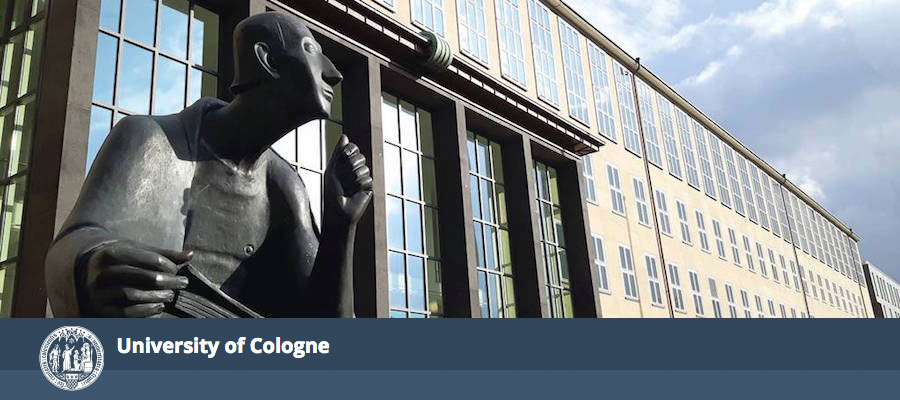Starting in April 2019, the a.r.t.e.s. Graduate School for the Humanities Cologne will award 10 doctoral fellowships as part of in the a.r.t.e.s. EUmanities programme.
a.r.t.e.s. EUmanities is a pioneering programme for a European Graduate School for the Humanities, co-funded by the European Union and the University of Cologne as part of the Marie Skłodowska-Curie Actions (Horizon 2020: MSCA). Central to this programme are its interdisciplinary approach and obligatory mobility phase.
Designed to meet the needs of individual Early Stage Researchers (ESRs) in the Humanities, beginning in April 2017 a.r.t.e.s. EUmanities provides places for up to 10 ESRs per year for 3 years, training young scholars to excel in research and cope with the global challenges Europe is facing.
ESR positions have a duration of 36 months per person.
ESRs may apply for:
- "a.r.t.e.s. EU": the European fellowship at a.r.t.e.s. EUmanities
- "a.r.t.e.s. global": the global fellowship at a.r.t.e.s. EUmanities
The a.r.t.e.s. Graduate School for the Humanities Cologne is the graduate school of the entire Faculty of Arts and Humanities. The Faculty of Arts and Humanities offers doctoral degrees in the listed disciplines: African Studies (Afrikanistik); Ancient History (Alte Geschichte); Anglo-American History (Anglo-Amerikanische Geschichte); Art History (Kunstgeschichte); Byzantine Studies (Byzantinistik); Catholic Theology (Katholische Theologie); Chinese Studies (Sinologie/China-Studien); Classical Archaeology or Archaeology of the Roman Provinces (Klassische Archäologie oder Archäologie der römischen Provinzen); Didactics of History (Didaktik der Geschichte); Digital Humanities; Dutch Studies (Niederlandistik); Eastern European History (Osteuropäische Geschichte); Egyptology (Ägyptologie); English Philology (Englische Philologie); Finnish Studies (Fennistik); General Linguistics (Allgemeine Sprachwissenschaft); Geography (Geographie); German Philology (Deutsche Philologie); Greek Philology (Griechische Philologie); Historical and Comparative Linguistics (Historisch-vergleichende Sprachwissenschaft); Iberian and Latin American History (Iberische und Lateinamerikanische Geschichte); Indology and Tamil Studies (Indologie und Tamilistik); Information Processing (Informationsverarbeitung); Japanese Studies (Japanologie); Jewish Studies (Judaistik); Latin Philology (Lateinische Philologie); Linguistics (Linguistik); Medieval History (Mittelalterliche Geschichte); Medieval Latin Philology (Mittellateinische Philologie); Modern and Recent History (Neuere und Neueste Geschichte); Musicology (Musikwissenschaft); North American Studies; Oriental Philology: study focus Islamic Studies or Indonesian Philology (Orientalische Philologie: Schwerpunkt Islamwissenschaft oder Indonesische Philologie); Philosophy (Philosophie); Phonetics (Phonetik); Pre- and Early History (Ur- und Frühgeschichte); Protestant Theology (Evangelische Theologie); Regional Studies China (Regionalstudien China); Regional Studies Eastern and Central Europe: study focus Russia or Poland (Regionalstudien Ost- und Mitteleuropa: Schwerpunkt Russland oder Polen); Regional Studies Latin America (Regionalstudien Lateinamerika); Romance Philology (Romanische Philologie); Scandinavian Studies (Skandinavistik); Slavonic Studies (Slavistik); Social and Cultural Anthropology (Ethnologie); Theatre and Media Studies (Theater- und Medienwissenschaft).
